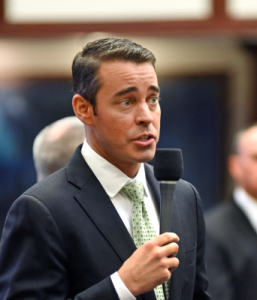A Florida House panel this afternoon signed off on a measure that would allow charter schools to receive more money for facilities, but not before setting off a debate about district finances and school construction costs.

As revised by the House Appropriations Committee, HB 873 would shift some school district property tax revenue to charter schools in years when state appropriations for charter school capital outlay fell below a certain amount. House legislative staff estimate charters would receive more than $60 million in property-tax revenue under a plan that sets aside $90 million in state Public Education Capital Outlay funding for charters next school year.
The bill also aims to rein in what House Education Appropriations Chairman Erik Fresen, R-Miami, said were more than $890 million in school construction cost overruns over the past decade.
But leaders in some districts said they’d managed their money responsibly and were still struggling to pay for buildings and other capital spending amid rapid population growth. Kurt Browning, the superintendent from the Pasco County school district, told the committee that nearly 87 percent of his district’s property tax revenue earmarked for capital spending is used to pay construction bonds in his fast-growing county.
“We have gone to great lengths of being very conservative with construction of our schools,” he said, adding: “We have a great bond rating, but we have maximized our ability to borrow money.” The district, he said, would have a hard time scraping together local money to share with charter schools.
Fresen said the proposed changes would cap district cost overruns and create more “equity” in state funding for capital projects. Right now, charter schools typically receive less funding per student, in part because most districts don’t share their local revenue.
“It’s about time that the Legislature, together with the school districts, puts together a structure that’s accountable to the taxpayer, and that it has to function in a more business-friendly way,” he said, adding that market pressure has already driven charter schools’ construction costs lower than their district-run counterparts, which are subject to more state regulation. “I have no problem applying that same cap to charter schools,” he added.
It’s not yet clear whether the state Senate will match the House’s proposal, or work on a plan of its own.
Rep. Daryl Rouson, D-St. Petersburg, voted for the legislation, but urged his colleagues to assuage districts’ concerns so that once it reaches the House floor, “it’s a better bill.”


